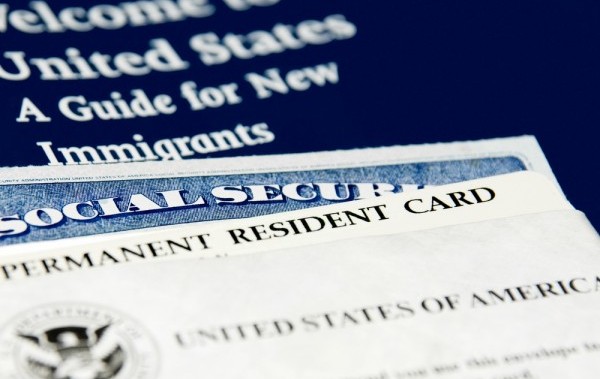Federal Immigration Reform Affects 2 Million Undocumented Californians

 Credit: Konstantin L / Shutterstock.com
Credit: Konstantin L / Shutterstock.com
The U.S. Senate recently passed a controversial immigration bill by 36 votes after fourteen Republicans sided with Democrats. The bill would allow undocumented immigrants in the states, including California, to become citizens and allot billions of dollars to secure the U.S.-Mexico border.
In California, the issue of undocumented immigration, and how to deal with it more effectively, has been heavily discussed for years. The Golden State has more immigrants than any other, with 27 percent -- over two million people -- being undocumented. In contrast, almost half the immigrants in California are documented.
Should this bill be put to law, undocumented immigrants would have the opportunity to obtain temporary legal status under the bill, followed by the ability to apply for citizenship within 13 years. The National Immigration Law Center (NILC) says the time frame is too long.
In order to acquire temporary legal status, undocumented immigrants would be required to pass a criminal background check, pay a fine, and reimburse whatever back taxes they had outstanding. The NILC also suggests these conditions would exclude more than a quarter of the 11 million undocumented immigrants in the country.
The Public Policy Institute of California (PPIC) recently reported that immigration to the state has slowed in recent years. However, recent population projections done by Department of Finance demographers found that "the Hispanic population will be even with the number of non-Hispanic whites by mid-2013.”
With over two million undocumented immigrants in California, the new immigration bill would be met with a sigh of relief from Sacramento. Last year, the Supreme Court ruled in favor of the federal government having sole authority over immigration laws, which places more significance on the measure for states in the Southwest.
Before the bill is able to produce the first major change in immigration law since 1986, it must pass through the Republican-controlled House. Conservative leaders have made it clear they do not intend to bring it up for a vote. These elected officials are concerned that undocumented immigrants would be given amnesty, despite assurances from the bill’s sponsors of a “long, costly process.”
President Obama commended the bill's passage in the Senate and the bipartisan compromise made by both parties, and is urging the House to do the same. He believes the bill to be “consistent with the key principles for commonsense reform."
Though the two parties were able to compromise in the Senate, bipartisanship doesn’t always produce the best results. Compromises based on the current two-party structure may be more about the party base rather than the best solutions. Whether or not the bill becomes law, California will be impacted the most by the bill's fate.



